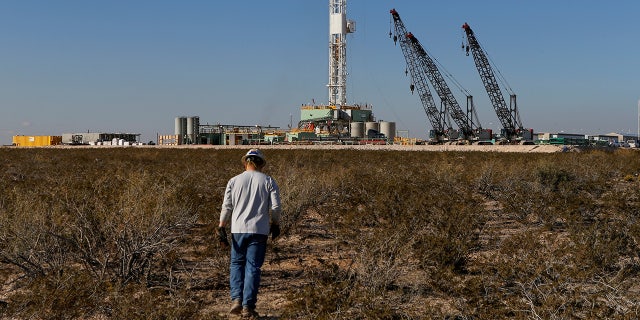Governments should consider imposing World War II-style policies of rationing on goods such as food, fuel and clothing in order to fight climate change, according to a newly published academic paper.
Researchers at the University of Leeds, a top British institution, wrote in the journal Ethics, Policy & Environment that rationing has been wrongfully “neglected” as a policy option for mitigating climate change, arguing such an approach would be more effective than the “slow and inequitable” results from tax hikes to promote a green agenda.
“We argue that rationing could help states reduce emissions rapidly and fairly,” the academic paper states. “Our arguments in this paper draw on economic analysis and historical research into rationing in the UK during (and after) the two world wars, highlighting success stories and correcting misconceptions.”
The authors added that the “rejection of markets, and a commitment to fair shares, is a key part of the value of rationing, and precisely what made rationing attractive to the public in the 1940s.”
The fire department uses a ladder truck to remove an environmental activists with the group Extinction Rebellion DC after they scaled the Wilson Building as part of an Earth Day rally against fossil fuels on April 22, 2022 in Washington, D.C. (Photo by Kevin Dietsch/Getty Images)
HOW A FIRST-GENERATION RANCHER USES INSTAGRAM TO DISPEL ‘PRECONCEIVED NOTIONS’ ABOUT BEEF PRODUCTION
Specifically, governments could ration various goods, such as flights, petrol, household energy, and even meat or clothing, according to the paper, which also suggests limiting “the number of long-haul flights an individual could make in a year” or “the amount of petrol one can buy in a month.”
Another way to roll out the rationing scheme could be “carbon cards” to track one’s “carbon allowance.”
Such an idea is not new. Last year, the president of Alibaba Group, a major Chinese tech company, boasted at the World Economic Forum’s annual meeting about the development of an “individual carbon footprint tracker” that will be able to track where people travel, how they travel, and what they eat.
The academics pointed to World War II as a model for rationing supplies to the public, claiming that while a rationing system is perceived as unattractive, many who experienced it did not have a negative experience.

An oil worker walks toward a drill rig after placing ground monitoring equipment in the vicinity of the underground horizontal drill in Loving County, Texas, Nov. 22, 2019. (Reuters/Angus Mordant)
REPUBLICANS UNVEIL EFFORT TO REMOVE BIDEN ADMIN’S BARRIERS BLOCKING OIL AND GAS DRILLING
“It is important to emphasize the difference between rationing itself and the scarcity that rationing was a response to,” the paper states. “Of course, people did welcome the end of rationing, but they were really celebrating the end of scarcity, and celebrating the fact that rationing was no longer necessary.”
A problem with rationing energy, the researchers note, is people might not be as willing to accept it as they would if resources were scarce, because they know there’s an “abundance of resources available.”
They suggest therefore regulating fossil fuels through limitations on activities such as oil exploration, long-haul flights, and intensive farming to create a scarcity in products that harm the planet. Then rationing could be introduced gradually to manage the subsequent scarcity.
Critics quickly decried the paper’s suggestions as extreme and unpalatable.
“Academics propose the rationing to combat climate change!” tweeted Nigel Farage, a British broadcaster and former politician. “Flights, meat, petrol and even clothing should have a non-transferable token, tracked by a ‘carbon card’ instead of bank card. Worst part is these crackpot ideas will soon be mainstream.”
The researchers did not immediately respond to Fox News Digital’s request for comment. However, the paper’s two lead authors provided statements to British press outlets.
“There is a limit to how much we can emit if we are to reduce the catastrophic impacts of climate change. In this sense, the scarcity is very real,” said Rob Lawlor.
Fellow lead author Nathan Wood said, “The concept of rationing could help, not only in the mitigation of climate change, but also in reference to a variety of other social and political issues — such as the current energy crisis.”
CLICK HERE TO GET THE FOX NEWS APP
Some supermarkets in Britain have already begun rationing fruits and vegetables amid soaring energy costs, which have devastated some farmers.